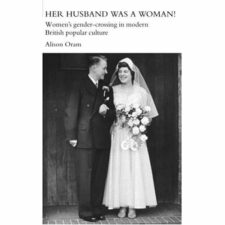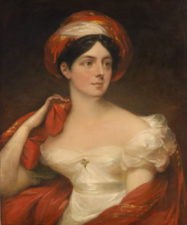The next 26 weeks of my life were spent upgrading my standard from Grade 1 to scholarship, Grade 7. I sat the exams, passing with a mark of 92 percent. The Brisbane Mater Hospital accepted me into their 1954 preliminary intake.
Then it was my parents and me scraping up all the money we could for the airfare from Thursday Island to Cairns and a train ticket from Cairns to Brisbane. The monsoonal rains arrived in Cairns when I did. All transport was held up for three weeks. Eventually I arrived in Brisbane, with the prelim already started and two options only left for me: I could return home and come back in six months time, or find employment until the next preliminary intake. I could do neither. I had no money for the return fare, and no training for city jobs. I had become an Islander again.
Sister Gabriel secured a nurse’s aid job for me at the Royal Brisbane Hospital for a few months. Whilst doing that, I did a correspondence course through Kelvin Grove Technical College, gaining a pass from the Queensland Education Department, so was accepted by the Queensland Nurses Registration Board. I then began my training at the Royal Brisbane Hospital (RBH), waiting to transfer back to the Mater Hospital. I made many friends and grew to love them and my work at the RBH, so I never did transfer back to the Mater. I went on to do obstetric training and worked in Queensland and the Northern Territory for 26 years as a nurse.
Being young and away from home, I was terribly homesick. Several times I decided to throw it in. My friends talked me out of it, saying I was a really good nurse and it was a shame to throw it away. Smiling, one of them told me she heard that ‘sister so and so’ had said in handing over her report to the evening staff that none of her patients would die that night, ‘because Nurse Loban is on night duty and nobody dies in her care,’ I stayed. It was a good decision.
After completing my midwifery training I couldn’t wait to return home to be with the family again. There, I was stopped in my tracks by the various policies concerning sisters and doctors, implemented by the so-called authorities. Notices in the sisters’ home and dining room of the Thursday Island Hospital declared: ‘Nursing sisters must not attend coloured Islanders’ parties or homes. They must not travel in unauthorised vessels.’ In the 1950s and early 1960s the hospital’s decisions were greatly influenced by the Thursday Island tennis club. The self-appointed cream of Thursday Island society (all white) were members until ‘the tone deteriorated’, because black people were learning to play tennis. A bowling club was formed and anybody who classed themselves above the black Torres Strait Islanders joined. Today, it’s just an ordinary bowling club. All the power people believed they projected has been diminishing since the Whitlam government of the 1970s came to power and gave status recognition to the Aborigines and Torres Strait Islanders.
I made history. I was allowed to live in the sisters quarters and have meals in the staff dining room, a ‘white’ precinct. Another dining room catered for the Torres Strait Islanders. As acting matron, I employed the first Torres Strait Islander trained and registered as an Enrolled Nurses’s Aid (ENA). When I returned from a statistics conference in Brisbane, I noticed this young woman was not about. I thought she may have gone home for the weekend. On Monday morning I waited for her to arrive but she didn’t turn up for breakfast. At lunch time I saw her heading for the other dining room. I called to her, enquiring why she wasn’t with us. She looked embarrassed. Later, in the office, she explained that the acting matron, in my absence, had suggested to her that perhaps she would feel more comfortable living in the coloured nurses quarters, and eating with them.
Here at this tiny tin pot hospital we had to put up with racial discrimination! When I approached my reliever, she didn’t deny it or apolgoise, but made sure she advised the matron on her return that I had questioned the decision. I was told this later, after I left. Life was made unbearable for the nurse, so that she too left and never returned. I was banned for six years from working in this hospital, because the hospital board disapproved of my private life. There was no defect in my nursing. So, there I was, a supporting mother of two very young girls, needing to be near my elderly father whose health was failing, and out of work. I had to get a job at the local pub as a kitchen maid.
I worked from 7am to 2pm, then from 5pm to 8.30pm five days a week for $25.00 a week. Here was I, a double certificate sister, scrubbing and polishing floors, washing up, polishing silver and furniture, peeling vegetables and doing other menial tasks. I was the only qualified Torres Strait Islander, and this reduced me in the eyes of my people, who thought: ‘What’s the point of seeking qualifications?’
I worked under these conditions until I met my present husband who was working at the court house. The local magistrate was chairman of the hospital board. He disapproved and warned my husband to disassociate himself from me. Tony refused, working at the court hosue whilst continuing to see me and the children, and doing his external law studies as an articled clerk. When Tony did not heed the magistrates’s warning, the magistrate had the police take him into ‘care’, and see to it that he was transferred off Thursday Island. Tony was in a state of shock. He couldn’t believe this could really happen, not in the twentieth century. On his transfer to Brisbane Tony was advised by the under secretary that if he continued to see me, and married me, it would affect his decisions whenever confronted with Aborigines and Islanders when he sat on the bench after he qualified. Tony gave up something he really loved, the law, terminating his studies and resigning. He met me in Cairns and we were married.
Anonymous letters came from people who objected to our marriage. One suggested that if Tony ever realised that getting married to me was a mistake, an annulment could be sought from the Pope. Do these pontifical poops ever regret inflicting those hardships on myhusband? Now that I am older, I still think back to the small-minded nastiness of these people, and their sanctimonious racism. Tony was blocked from clerical work, even, and had to work in a fertilising plant as a labourer. Handling the bags gave him blisters and his hands became raw, because he wasn’t used to it. I bathed and treated them every night. I couldn’t get work in any of the hospitals initially, because of blackballing by the Thursday Island Hospital. This persecution was not reserved for me; many other outspoken sisters suffered the same intimidation until matrons of other hospitals woke up to themselves, and began employing the sisters on their own merit …
Ellie Gaffney (c) 1992
Ellie Gaffney spoke at many community, state, national and international meetings and conferences, including the United Nations Working Group for Indigenous Populations Conference at Geneva, Switzerland in July-August 1989 and, in August 1990 on Thursday Island, at the Foreign Affairs Sub-Committee Inquiry on Australia’s Relations with Papua New Guinea.
This is an extract from ‘The Women’s Time has Arrived’, published in As a Woman – Writing Women’s Lives, 1992, Artemis Publishing, Melbourne, Australia (Jocelynne A. Scutt, ed.).

